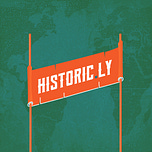Today, Todd Miller joins us to talk about his new book, “Empire of Borders.” What is going on at the US-Mexico border, is just the tip of the iceberg. The US Security state is worldwide and it is waging a war in on the Poor.
Excerpt
We arrived at the Guatemalan military base in Zacapa on a hot morning in early June. In the front there was a closed gate guarded by soldiers in green jungle camouflage and floppy hats, cradling automatic weapons. Zacapa, one of 22 department capitals in the country, sits in the eastern borderlands with Honduras. Its name comes from Nahuatl; it means “river of grass.” From Zacapa, if you wanted to go to Brownsville, Texas—the closest point in the United States—you’d travel almost 1,440 miles overland, mostly up Mexico’s Gulf Coast Highway. But if you wanted to see the U.S. border, you wouldn’t need to travel at all; it has already come to this small city in Guatemala. That’s why I was there.
I had come with fellow researcher and photojournalist Jeff Abbott to meet with the Chorti task force, Guatemala’s new border patrol, but I wasn’t at all sure they would let us in. We were two hours late. Luckily, the soldiers—who looked as if they were in their late teens—heard me out. I explained the 200- mile journey we’d taken to get to Zacapa from San Pedro Sula, where we’d been the day before. I told them that the buses in Honduras didn’t run at night and the bus driver this morning decided to have a 45- minute breakfast (I was wary about adding this last detail because, really, how could I blame him? But I had to build my case). I told them about the delay at the international border. They nodded because they knew. They knew what it was to travel, to move, to migrate, especially across international borders—so fraught with difficulties, including an endless string of checkpoints. At the Zacapa base, I wondered if any of the soldiers who stood before me, someone perhaps from one of Guatemala’s many poor communities, would be permitted entry into the United States. I wondered how many had tried.
We live in a world of the included and the excluded, of those who can vacation (and do business) where they please and those who are walled in by borders and armed guards. And many of those armed guards, as was clearly the case with the soldiers at the Zacapa base, would themselves be prevented from crossing a good percentage of the globe’s political borders. ….
In Zacapa, we waited while one of the soldiers made phone calls. We tried to find shade under the corrugated metal roof overhanging the front gate. From where we stood there was a view of a parched mountain, with “Segunda Brigada de Infanteria C.G.R.C.” (Second Infantry Brigade) inscribed on the ground on the side of the mountain, in large white letters amid bushes and small, shrubby trees under what looked like a cell tower. The military base was in the Central American dry corridor—a long swath of territory that extended into Honduras, El Salvador, Nicaragua, and as far as Panama—and at this very moment, on June 2015, they were experiencing a historic drought. For small farmers in the region, the drought was going to eat away harvests, leaving hunger in a place that climate scientist Chris Castro called “ground zero” for climate change in the Americas. These droughts have persisted now for years (in 2009, Guatemalan President Alvaro Colom declared a “state of calamity,” or a famine), and according to Castro, if climate-changing trends continue, it will get worse.
Not only has the planet’s earth- altering era of climate change, which some call the Anthropocene, been a gut punch to a place like Guatemala, it’s gone hand in hand with an unprecedented thrust in border militarization across the globe. Long- term forecasts have predicted that ecological upheavals are going to drive unparalleled levels of human migration. I had plenty of time to think about all this while we waited for permission.
Finally, the soldier making the calls returned. “Are you with BORTAC?”
I was stunned. Had I heard him correctly?
There was only one possible way that the soldier could have known about BORTAC—the U.S. Border Patrol special forces and tactical unit. Agents of BORTAC must have stood at this gate before. Even in the United States, very few people knew about BORTAC’s SWAT-style operations in the U.S. borderlands, or about its “global response capacity.” Fewer still were aware that BORTAC had conducted “training and operations both in the United States and in other countries in furtherance of the U.S. Border Patrol’s mission.
About Todd Miller
Todd Miller is the author of Border Patrol Nation and Storming the Wall, winner of the 2018 Izzy Award for investigative journalism. His writing has been published by the New York Times, TomDispatch, Mother Jones, the Nation, Al Jazeera English, and Salon.














Share this post